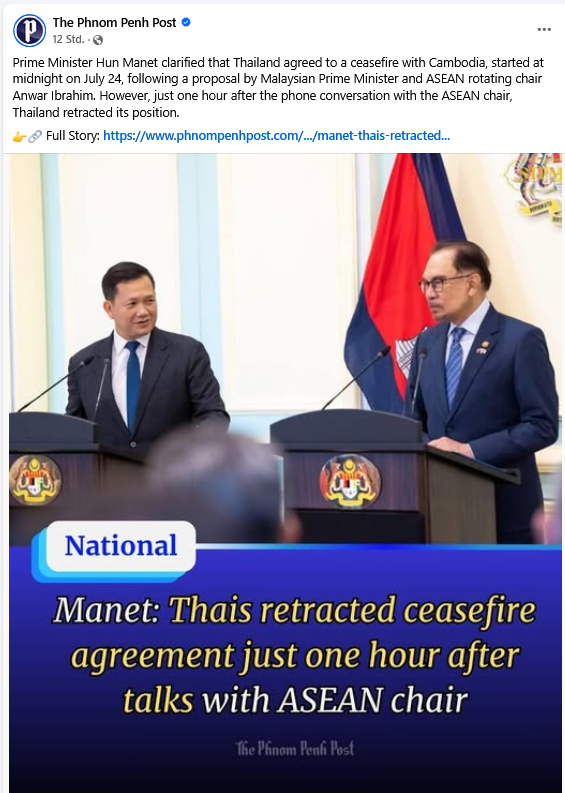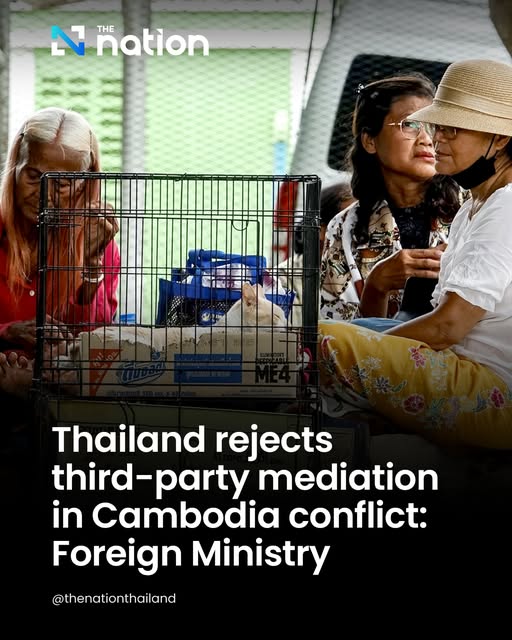Thailand refuses ceasefire
In the escalating border conflict between Cambodia and Thailand, Cambodian Prime Minister Hun Manet publicly commented on the failed ceasefire on Friday and accused Thailand of a U-turn on the agreements. At the same time, it became known that Thailand has rejected international mediation offers and is insisting on a purely bilateral solution.
Hun Manet explained that the Malaysian Prime Minister and current ASEAN Chairman Anwar Ibrahim had a telephone conversation with him on the evening of July 24 in which he expressed his concern about the ongoing fighting. Ibrahim had suggested an immediate ceasefire to allow negotiations between the two sides.
Cambodia, Hun Manet said, had agreed to the proposal as it had not entered the conflict as an aggressor. After talks with the Thai Prime Minister, the Malaysian side initially confirmed that Thailand had also agreed to a ceasefire from midnight on July 24. However, Bangkok withdrew its agreement just one hour later. “Instead, Thailand announced that it would not enter into a ceasefire for the time being and would wait for a later date,” said Hun Manet. He emphasized that Malaysia knew the situation very well.
At the same time, Hun Manet pointed to “ambiguous” media reports about Cambodia’s stance and made it clear that Phnom Penh was still prepared to stop the fighting immediately – as soon as Thailand was ready for a credible ceasefire.

Thailand rejects mediation by third parties
While Cambodia is open to international mediation, Thailand categorically rejects such offers. As The Nation Thailand reported on Friday, a spokesman for the Thai Foreign Ministry, Nikorndej Balankura, told the news agency Reuters that Thailand rejects any form of third-party mediation in the current conflict.

According to the report, the United States, China and Malaysia – the current ASEAN chair – have signaled their willingness to facilitate talks between the two countries. Thailand, however, insists that the conflict must be resolved exclusively through bilateral dialog.
No easing in sight
The situation along the disputed border remains tense. While Malaysia, as ASEAN chair, is attempting to mediate diplomatically, both parties to the conflict remain on a confrontational course. Thailand rejects any international interference.
A rapid de-escalation therefore does not appear to be in sight for the time being.